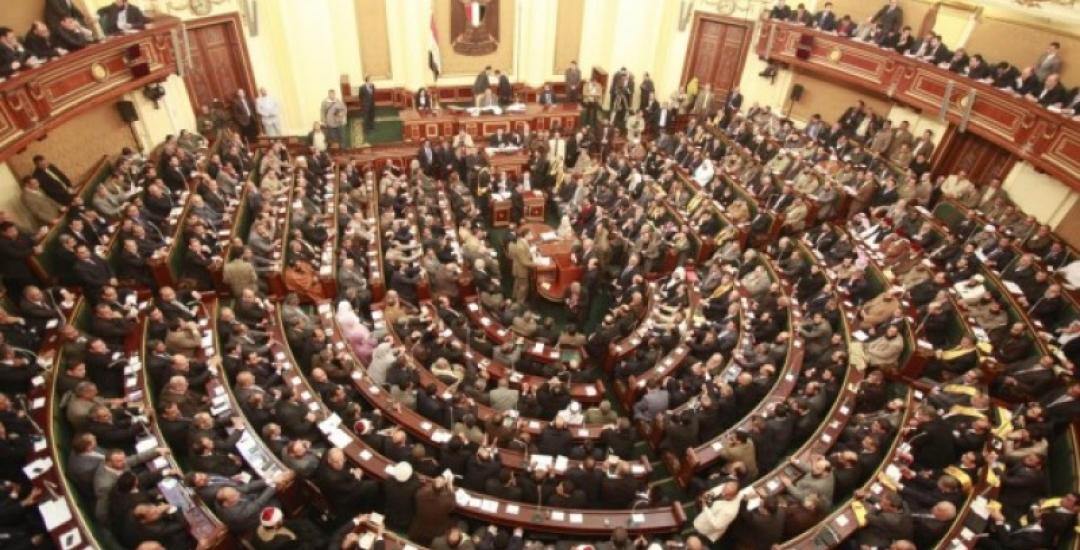
Over two years after Egyptian General, Abdel Fattah El Sisi overthrew the government of former President Mohamed Morsi, the time has come for Egypt's newly elected Parliament to review the laws adopted by the executive over the past two years. Fully aware of the challenges ahead, Alkarama sent a letter to several United Nations Special Procedures on human rights calling upon them to issue a statement asking the new Egyptian House of Representatives to uphold its mandate under the 2014 Constitution by effectively reviewing all laws adopted since July 2013 and amending or revoking those deemed to infringe on Egypt's international obligations.
This letter follows the parliamentary elections that took place in Egypt in the past month and closed on 16 December 2015. Since Article 156 of the Egyptian Constitution provides that the House of Representatives shall discuss decrees ratified by the executive branch within 15 days of the commencement of its first session, or risk to see their force of law retroactively revoked, it can be inferred that this new Parliament will be called before the end of the year to review all laws passed by President Sisi and decide whether to adopt, revoke or amend them.
In view the several decrees adopted by the authorities − in the absence of a House of Representatives − that violate Egypt's obligations under the International Covenant on Civil and Political Rights (ICCPR) and the Convention against Torture (UNCAT) to which Egypt is a party since 1982 and 1986 respectively, and of the dozens of cases of severe human rights violations that Alkarama continues to receive every week, the Geneva-based human rights organisation hopes that the new Members of Parliament will take their task all the more seriously.
In particular, Alkarama wishes the new MPs to review:
- Procedure Act n°83 of 2013 in force since 23 September 2013, under which hundreds of individuals have been kept in detention without charge for months, mostly for political reasons, such as Abdelrahman Mahmoud Omar Kamal, a 23-year-old civil engineer and charity worker arrested by the Homeland Security on 22 September 2014 and secretly detained and tortured for 119 days.
- Law n°107 of 2013 on the "Right to Public Meetings, Processions and Peaceful Demonstrations" in force since 24 November 2013, under which thousands of individuals have been arrested and sentenced to lengthy prison terms for "participation to an illegal demonstration," such as 12 men arrested during peaceful demonstrations in July and August 2013 and subsequently tried before military courts, which sentenced them to prison sentences of 15 years up to life imprisonment.
- Law n°136 of 2014 for the "Securing and Protection of Public and Vital Facilities" in force since 27 October 2014, under which thousands of civilians have been tried before military courts and sentenced to life in prison or even death following mass unfair trials. This law has also been used to try minors, such as Seif Al Islam Osama Shousha, a 16-year-old boy sentenced on 4 August 2015 to three years in prison and a 50,000 Egyptian pounds fine under trumped-up charges of "illegal demonstration" and "belonging to a terrorist group [the Muslim Brotherhood]."
- Law n°8 of 2015 on Terrorists Entities in force since 17 February 2015, which defines terrorist entities under particularly vague terms that can lead political groups or human rights organisations to be designated as terrorist entities, dissolved, and their members prosecuted. One of the most recent examples is that of Hisham Ahmed Awad Jafar, head of the independent NGO Mada Foundation for Media Development, arrested by members of the Homeland Security on 21 October under charges of "affiliation to a terrorist group" and of "receiving funds from foreign entities."
- Law n°95 of 2015 for Confronting Terrorism in force since 15 August 2015, which not only makes death penalty the mandatory punishment for anyone found guilty of committing a "terrorist crime" or attempting to do so, but also restricts freedom of the press by punishing, with a fine and a possible ban from practice, the publication of news contradicting official statements on terrorist acts.
"Egypt is at a critical time of its modern history," explains Thomas-John Guinard, Legal Officer for the Nile region at Alkarama. "By revoking or amending the decrees highlighted above, Members of Parliament could have a decisive impact on the promotion and protection of human rights in Egypt and pave the way for a better future for all Egyptian citizens."
For more information or an interview, please contact Alkarama's Media team: media@alkarama.org (Dir. +41 22 734 1008)
